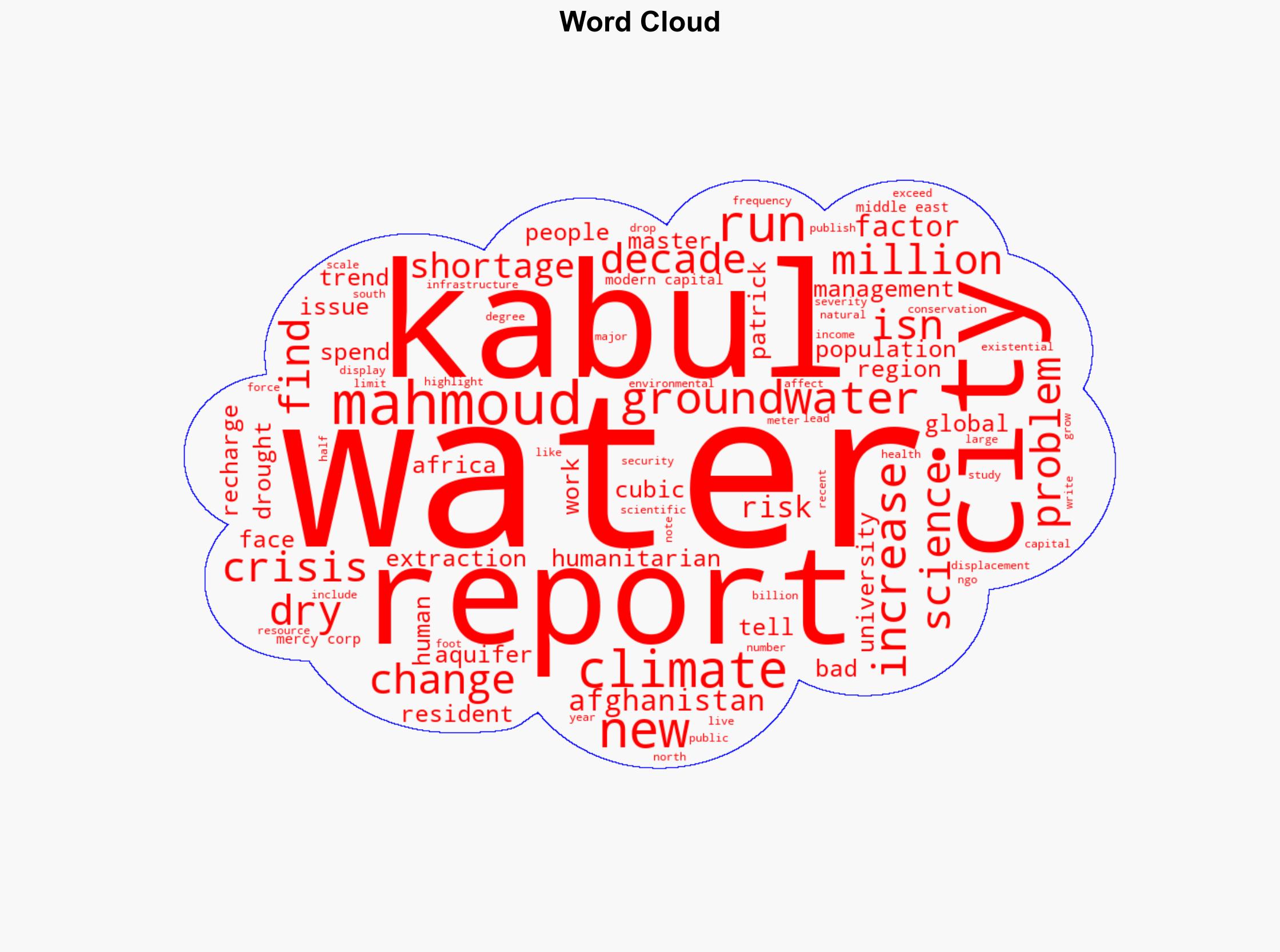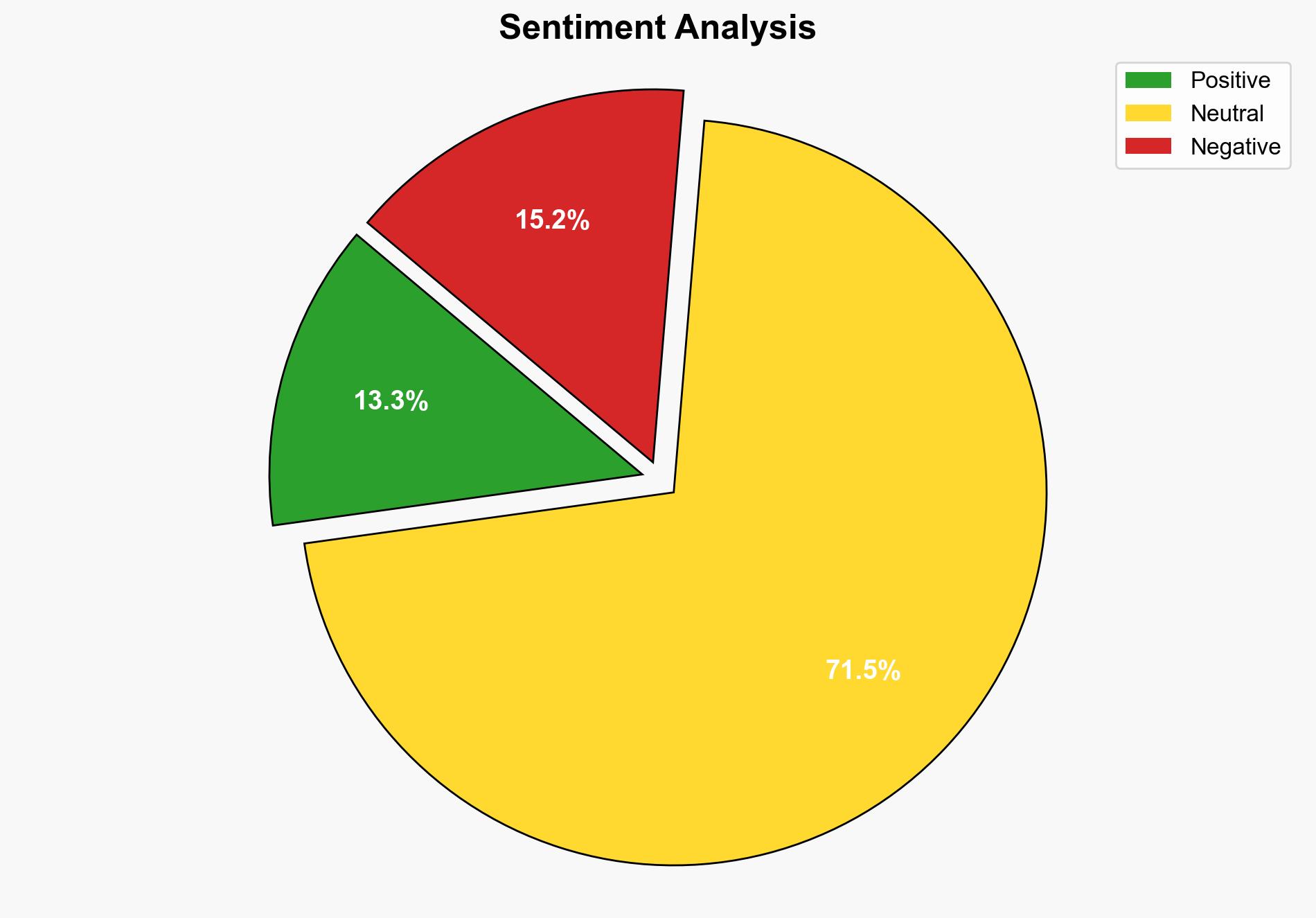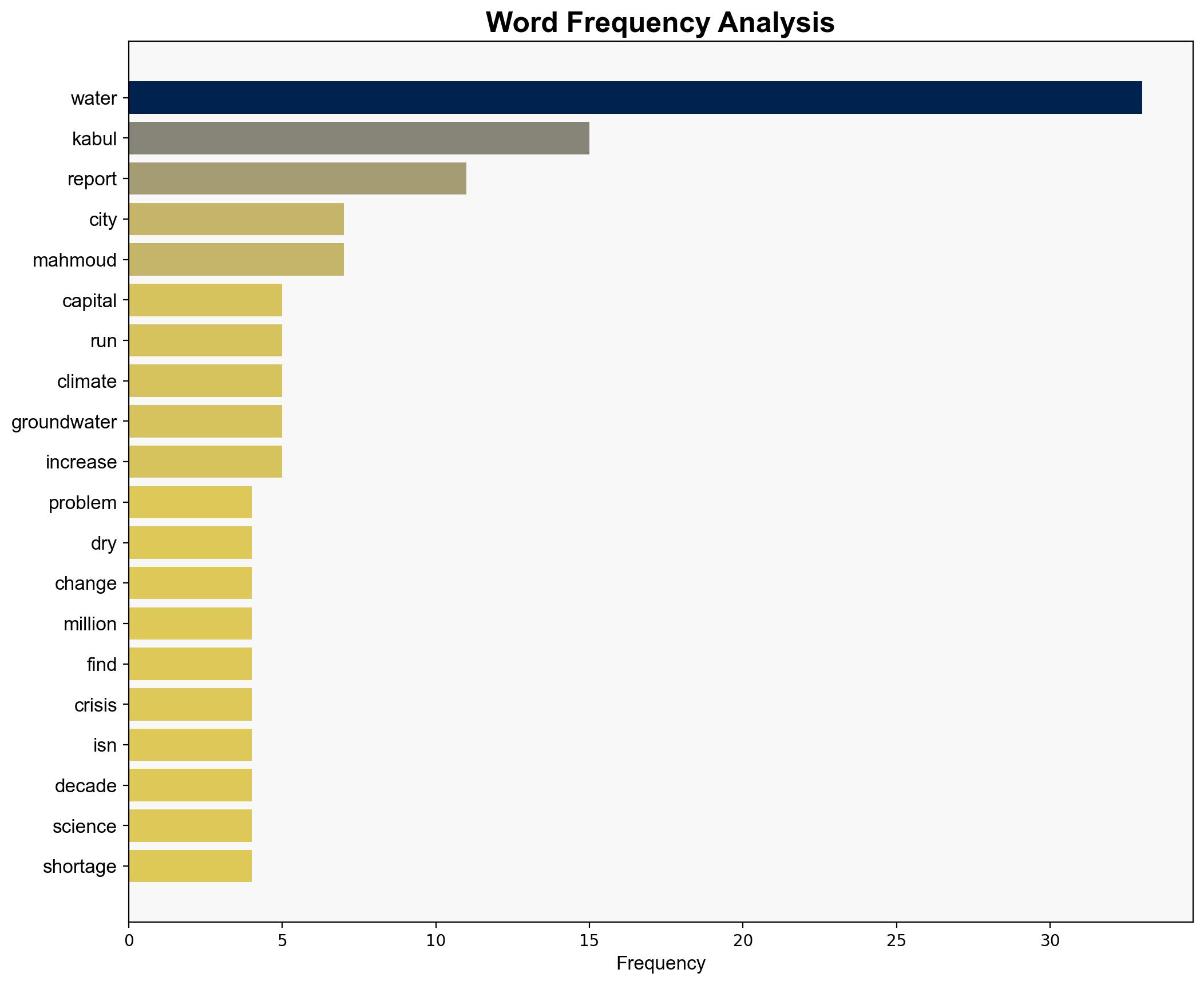Kabul could become the first modern capital to run out of water here’s why – Live Science
Published on: 2025-07-24
Intelligence Report: Kabul could become the first modern capital to run out of water here’s why – Live Science
1. BLUF (Bottom Line Up Front)
Kabul faces a severe water crisis, potentially becoming the first modern capital to run out of water. The most supported hypothesis is that a combination of climate change, poor water management, and rapid urbanization are accelerating this crisis. Confidence level: High. Recommended action: Immediate international collaboration to improve water management and infrastructure, alongside humanitarian aid to prevent large-scale displacement.
2. Competing Hypotheses
1. **Hypothesis A**: Kabul’s water crisis is primarily driven by climate change and environmental factors, such as increased drought frequency and altered rainfall patterns, leading to insufficient natural water replenishment.
2. **Hypothesis B**: The crisis is predominantly due to human factors, including poor water resource management, rapid urbanization, and population growth, which have outpaced the development of necessary infrastructure.
Using ACH 2.0, Hypothesis B is better supported as the report highlights rapid urbanization and poor management as key contributors. The evidence of half of Kabul’s boreholes drying and the aquifer depletion aligns more closely with human-induced factors.
3. Key Assumptions and Red Flags
– Assumptions: Both hypotheses assume that the current data on water levels and population growth are accurate and that no significant policy changes have been implemented recently.
– Red Flags: The report may underrepresent the potential for international aid or technological interventions. There is also a lack of detailed data on water management policies currently in place.
– Blind Spots: The potential impact of regional geopolitical dynamics on water resource allocation is not considered.
4. Implications and Strategic Risks
The water crisis in Kabul could lead to significant humanitarian challenges, including public health emergencies and large-scale displacement. Economically, the crisis could destabilize the region, impacting local and regional markets. Geopolitically, water scarcity could exacerbate tensions within Afghanistan and with neighboring countries over shared water resources. There is also a risk of increased migration, which could strain resources in neighboring regions.
5. Recommendations and Outlook
- Immediate international collaboration to improve Kabul’s water infrastructure and management practices.
- Humanitarian aid to ensure access to clean water and prevent displacement.
- Scenario-based projections:
- Best Case: Successful international intervention stabilizes the water crisis, preventing displacement and improving public health.
- Worst Case: Continued mismanagement leads to a complete depletion of water resources, causing mass displacement and regional instability.
- Most Likely: Partial interventions slow the crisis but do not fully resolve underlying issues, leading to ongoing challenges.
6. Key Individuals and Entities
– Mohammed Mahmoud: Water security expert involved in the report.
– Mercy Corps: Humanitarian NGO that published the report.
7. Thematic Tags
national security threats, environmental crisis, humanitarian aid, regional focus





